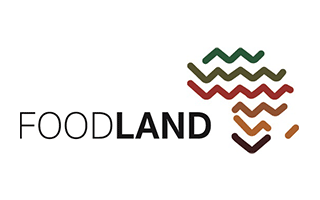FoodLAND: Cultivating Innovation, Ensuring Lasting Impact
From 29th January to 1st February the 28 FoodLAND partners from Europe and Africa gathered in Meknès, Morocco for the final FoodLAND project meeting bringing the four-and-a-half years of innovative work in agriculture, nutrition and food security slowly to an end.
Hosted by the partners at the National School of Agriculture of Meknès (ENAM), the meeting was not just about sharing final results but also seeing the impact of those results firsthand. Partners stepped outside the conference rooms and into the fields, where an innovative onion storage system was presented blending traditional storage techniques with modern efficiency. A new soil monitoring technology promised to give farmers real-time insights, while drones demonstrated how they could track crop health from above, providing data-driven support to local farmers below.
FoodLAND: A Mission to Transform Agriculture & Nutrition
Funded with 7 million Euros under the Horizon 2020 program and led by Alma Mater Studiorum – University of Bologna (Italy), FoodLAND set out to rethink agriculture, aquaculture and nutrition across six African countries: Morocco, Tunisia, Ethiopia, Kenya, Uganda and Tanzania.
The goal? Strengthen agro-biodiversity, promote food diversity and tackle key challenges such as malnutrition, food security and sustainable farming.
Over the course of the project, FoodLAND established 14 Local Food Hubs connecting urban and rural communities to test and implement new solutions, developed and validated new farming technologies enhancing both vegetable and fish production and created innovative local food products, including fresh and dried vegetables, composite flours and therapeutic foods.
Speaking on EURICE’s role within the project, Dr Verena Gluschak, Senior Research and Innovation Manager at EURICE, stated “Sustaining these innovations once they have been developed is where EURICE’s expertise comes in.”
EURICE: Driving Impact Beyond the Project
As task leader for exploitation and sustainability of project results, EURICE is working towards ensuring that FoodLAND’s innovations actively improve lives.
Dr Sonja Bergner, Head of the Food & Farm-to-Fork Innovation Ecosystem at EURICE, explained “FoodLAND fits perfectly within our portfolio of projects which focuses on addressing critical issues such as sustainable food systems, food security and agroecology. This project is an important example of how we bring together diverse partners and expertise to tackle global challenges, promoting innovations that can have a lasting, positive impact on both local and global food systems.”
FoodLAND is unique as it is the first project within EURICE’s Food & Farm-to-Fork key thematic area to feature African partners, expanding EURICE’s global network, knowledge and partnerships.
The Power of Low-Tech Innovation: Small Changes, Big Impact
One of FoodLAND’s greatest strengths has been its focus on practical, accessible and effective low-tech innovations such as bio-packaging and solar dryers for sustainable food preservation, aquaculture consultancy and knowledge transfer to improve fish farming and biofortified seeds developed from native crops to enhance nutrition.
Unlike high-end, costly technological advancements, low-tech solutions like these are designed to be adopted and sustained by local communities. They prove that sometimes the smallest changes can make the biggest difference.
At the final meeting, EURICE introduced the Impact Licensing Initiative (ILI), a European-funded project which leverages impact licensing as a strategic instrument to maximize the societal benefits of such technologies. This is achieved through optimising the valorisation potential of technologies, for example through re-use or re-purposing while maintaining the integrity of the IP.
“The results presented at the FoodLAND meeting align well with the ILI project objectives, where we seek to create societal impact by licensing technologies under time-bound and preferred conditions in a pre-defined market” explains Klara Schneider, Senior Innovation Manager at EURICE.
She continued “Through the innovation in local food hubs, the African countries involved have already laid the groundwork for direct impact in their communities. We will now explore how we can foster long-term impact through impact licensing, benefiting both the local communities and technology holders.”
As a member of ILI, the team is determined to ensure that FoodLAND’s breakthroughs remain accessible and continue benefiting communities beyond the project’s end in February this year. Over the next four years, project partners will continue to refine, develop and scale their innovations, bringing them to market and directly benefiting farmers, producers and local communities.
EURICE remains committed to expanding networks and forging new partnerships, providing strategic expertise in intellectual property and impact licensing and helping to ensure that the innovations developed within FoodLAND reach those who need them most.

